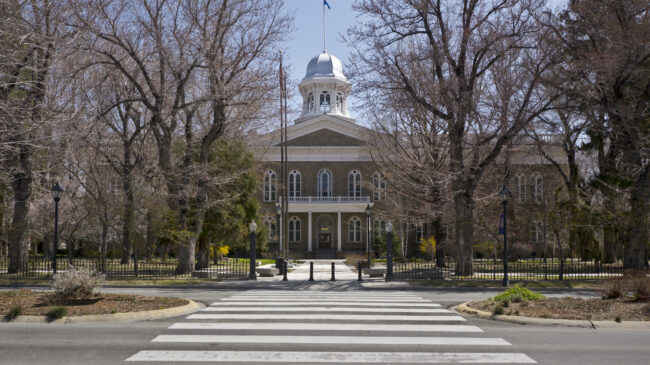This public comment was originally submitted to the Nevada Assembly Health and Human Services Committee.
On behalf of Reason Foundation, thank you for accepting these comments and making them part of the public record. Reason Foundation is committed to ending the drug war and allowing discerning adults to safely and responsibly partake in substances they believe may enhance their lives.
Decades of academic research combined with the emerging results of large-scale clinical trials have shown that psychedelic substances, which have been used within many cultures since antiquity, may hold substantial value for improving mental health. Senate Bill 242 would set Nevada on a positive path toward creating a framework to legally allow the use of psychedelics as a valuable treatment.
Over the past few years, the U.S. Food and Drug Administration (FDA) has recognized psychedelic substances as “breakthrough therapies” for post-traumatic stress disorder (PTSD), major depressive disorder, and treatment-resistant depression.
“The criteria for breakthrough therapy designation require preliminary clinical evidence that demonstrates the drug may have substantial improvement on at least one clinically significant endpoint over available therapy.” This designation is reserved for the treatment of “serious or life-threatening conditions.”
Emerging evidence from clinical trials appears to validate the FDA’s designation of these substances as breakthrough therapies. In a psilocybin trial for treatment-resistant depression, 30% of patients achieved remission within three weeks of receiving a single dose, and this remission persisted for at least 12 weeks. This is notable because treatment-resistant depression is diagnosed when a patient has been unresponsive to at least two other forms of treatment.
Psilocybin treatment, combined with therapy, has aided adults with alcohol use disorder to reduce alcohol consumption by more than half over 32 weeks from treatment. Psilocybin treatment combined with cognitive behavioral therapy may also become an extremely effective treatment for smoking cessation. An early trial has shown that therapy combined with two to three administrations of psilocybin allowed two-thirds of participants to successfully quit smoking and remain abstinent for an entire year.5
Recent research from Reason Foundation summarizes the results of major clinical trials to date that evaluate the effectiveness of psilocybin in treating a wide range of mental health conditions. It concludes that psilocybin therapy is a promising treatment for a wide array of conditions and that states should take action to facilitate access to psilocybin therapy through a regulated framework.
Although the FDA appears poised to approve certain psychedelic therapies within the next few years, the process of pharmaceutical approval through the FDA is slow and costly. A study in the Journal of the American Medical Association reviewed drug approvals between 2009 and 2018 and estimated the average cost of bringing a pharmaceutical to market at $1.34 billion. Once the FDA grants market approval for a drug, pharmaceutical companies must recover their expenses and compensate providers of capital for the time and risk involved in drug development through their pricing schemes. This means FDA-approved medications, even if they become available, are likely to be more costly than naturally occurring alternatives.
Nevada can get ahead of this process by allowing for the cultivation, manufacturing, or possession of psychedelic substances within its own regulatory framework. In Oregon, voters approved Measure 109 in 2020, which enacted a state-regulated market for psilocybin services, including state licensing for the commercial manufacture and distribution of psilocybin products. The first such licenses were issued this May.
State legalization sidesteps the uncertain timeline involved in federal approval of pharmaceuticals, allows states to tailor their policies, and could alleviate cost barriers for individuals seeking psychedelic therapy.
Senate Bill 242 is an important step in the right direction. It would establish a Psychedelic Medicines Working Group and task it with reviewing the existing literature and developing an “actionable plan to allow access to safe and affordable entheogens so that such entheogens may be used for therapeutic purposes” during the 2023-2024 legislative interim. Oregon followed a similar approach in the two years following the approval of Measure 109 to prepare for the launch of its regulated marketplace. An earlier version of Senate Bill 242 would have decriminalized the possession of up to four ounces of psilocybin-producing fungi by adults. The current version is a measured approach that stops short of such a fundamental reform.
Overall, Senate Bill 242 is a constructive proposal that lays the groundwork for the future adoption of a regulated marketplace for psilocybin through a deliberative and public process.

